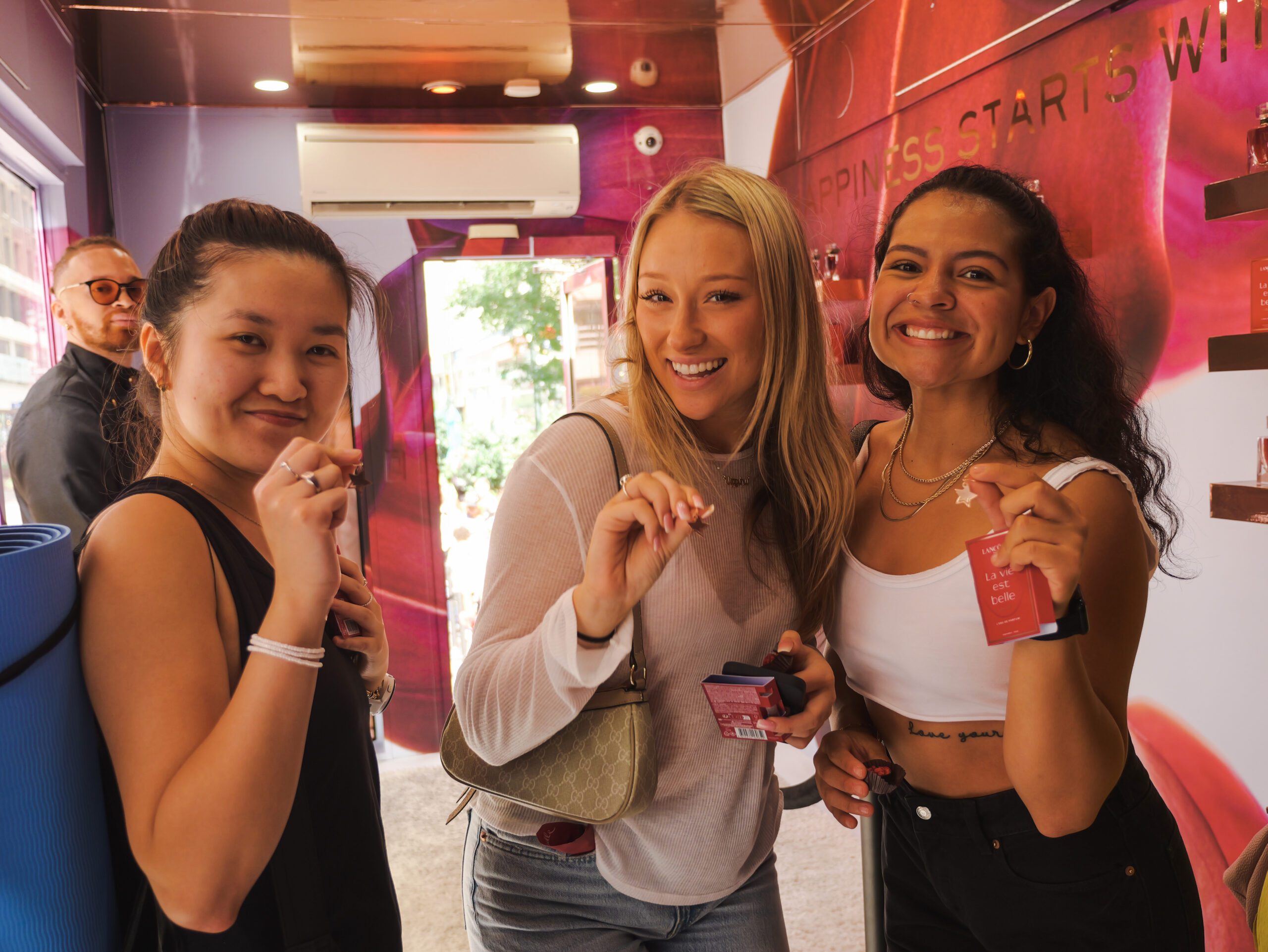
- Demographics & Analysis
Gen Z: Winning Them Over with Experiential Marketing
Gen Z is a uniquely powerful demographic for brands to target — but capturing their attention requires a different approach than older generations. By understanding Gen Z’s values, communication preferences, and desire for genuine connection, brands can effectively capture their attention and build lasting relationships. Here are some keys to understanding these fascinating young consumers.
Who Is Gen Z?
Generation Z, also known as Zoomers, is the demographic cohort succeeding Millennials and preceding Generation Alpha. Generally, it’s considered to be those born between the mid-to-late 1990s and the early 2010s. This means the oldest members of Gen Z are entering their late 20s in 2024, while the youngest are still teenagers. There are over 68 million Gen Z’ers, making them about one-fifth of the U.S. population; in the U.K., they total about 15% of the population.
Gen Z are often called “digital natives,” because they are the first generation to grow up entirely after the advent of the Internet and smartphones. They’ve also never known a world without social media, and one recent study found that 98% of them use it, according to market intelligence agency Mintel. Gen Z also “grew up using the precursors to the ‘metaverse’ such as Minecraft, Roblox, or other immersive experiences,” notes a recent blog post by Talon.One, which makes promotion software for enterprises.
Several major events helped shape and define Gen Z’s worldview. The Covid-19 pandemic hit Gen Z hard, as did the 2007–2009 recession. While the recession probably wasn’t top-of-mind for the Gen Z’ers who were young children when it occurred, “the effects of the great recession were most certainly felt by their families,” notes Talon.One. Continued economic struggle with high housing prices and high inflation helped create Gen Z’s pragmatic worldview. One way this shows up is in their career and education choices; for example, they are drawn more to STEM degrees than humanities, and they tend to be financially risk averse. These traits also play out in their behaviors as consumers.
Who Are Gen Z as Consumers?
Gen Z are the first true digital natives.
They’ve grown up with the internet and technology as an integral part of their lives, making them highly comfortable with online platforms and communication, including everything from cell phones to smart watches to social media and digital wallets.
They do their research.
Like their Gen X parents, Gen Z tend to be “informed consumers, and will often research and weigh up options before making a buying decision,” notes Talon.One. As digital natives, they do this quickly, according to Mintel — their lifelong digital experience means they have shorter attention spans and don’t follow the same deliberative process as earlier generations, but it also means they’re used to, and skilled at, finding and assessing information quickly.
They value authenticity and transparency.
Gen Z individuals are skeptical of traditional hard-sell marketing tactics and value authenticity and transparency from brands. They favor brands that align with their values, whether political, environmental, or social. “To resonate with these audiences, businesses should be transparent about their mission, values, and sustainability efforts,” according to a post on FiveCRM.com.
They’re savvy enough to be wary of unethical practices and “greenwashing,” particularly from mainstream brands, notes Mintel. “To avoid such accusations, brands should avoid vague language and offer evidence of their sustainable efforts.”
They are socially conscious, with an eye toward sustainability and eco-friendliness.
Members of Gen Z are known for being progressive and engaged in social and environmental issues, such as climate change, equality, and diversity.
How Does Gen Z Shop?
They aren’t necessarily brand loyal — but they prefer to buy directly from brands.
Unlike their Gen X parents, however, Gen Z consumers “tend to be much less attached to specific brands,” according to Talon.One. That said, “they prefer to cut out the middleman and shop directly from brands themselves, giving businesses a reason to be present through an online store or on social media platforms,” says Born.
They may research online, but they still like shopping in person.
One of the many seeming contradictions around Gen Z is that though they are digital natives, they still like shopping in stores. “They like having real shop assistants to help them,” says Talon.One. Like earlier generations, they also like being able to see, feel, and sample products before they buy.
But the primary reason they like to shop in person is often practical: “Over half (51%) of Gen Z shoppers prefer to shop in-store to avoid waiting for delivery, and 48% prefer in-store purchases to avoid delivery fees,” notes a post by Mackenzie Born for Square, an online business technology platform.
They rely on social media for information as well as shopping.
Members of Gen Z use social media to communicate with each other and their families, and as a way to build and express personal identity. It’s also the primary place they follow trends and seek product reviews and recommendations — which means that for them, social media holds significant conversion power. In a recent study, writes Born, “43% of young consumers said they’re willing to purchase a product based on an influencer’s recommendation, and 49% said they like shopping directly on social media.”
Gen Z “value peer recommendations and user-generated content,” says FiveCRM. “Encouraging user-generated content through contests, branded hashtags, and interactive campaigns can generate buzz, build trust, and create a sense of community around your brand.”
Deciding factors: reviews, incentives, return policies, value.
Gen Z shoppers “won’t hesitate to abandon a purchase that is too expensive, too slow, or too difficult at checkout,” Born notes. Members of Gen Z will walk away from an online purchase if delivery is too slow or pricey, if no discount or sale is offered, if the website doesn’t include reviews, or if the brand has unfavorable return options.
So what works? Sales and discounts are always attractive to Gen Z consumers, as is allowing online purchases to be returned at physical locations.
Generation Z is more conservative with its spending habits than millennials were at a similar point in their lives and favors purchases that provide good value for money,” explains FiveCRM. Successful marketing approaches include emphasizing the value of products and positioning them as a wise “investment.”
They expect and appreciate personalized experiences.
Gen Z has grown up in the era of data-driven targeting and automation — so they expect it, FiveCRM notes. “Customized product recommendations, personalized emails, and interactive content can enhance engagement and drive conversions” with this group.
They seek connection.
Along with Gen Z’s desire for authenticity and transparency comes a preference for connection — for authentic content that has a purpose. With this group of consumers, take an omnichannel approach to give them an opportunity to get to know your brand across multiple media. Develop a clear brand voice, and apply it consistently across all channels, FiveCRM advises. “Incorporate your brand values into your content pieces and research topics for your blog, website, email newsletters, and social media posts for better engagement with this generation.”
Promobile Marketing is a dynamic experiential marketing agency based in New York City. For over a decade, Promobile Marketing has collaborated with a range of brands—from budding startups to major CPG brands—on immersive marketing campaigns. Get in touch to discuss your next project.


